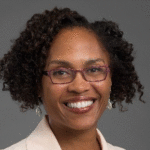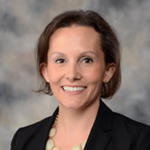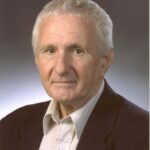
Who We Are
The Mobile Toolbox team includes measurement scientists, clinicians, cognitive researchers, and technical experts with a proven history of success in multiple large-scale validation and development projects. Below we highlight the lead Mobile Toolbox investigators and link to a more complete list of contributors to earlier versions of this project.
Our Leadership Team

Richard C. Gershon, PhD
Dr. Richard Gershon is Division Chief of Outcome and Measurement Science in the department of Medical Social Sciences at Northwestern University’s Feinberg School of Medicine. He is PI for the NIH Toolbox for the Assessment of Neurological and Behavioral Function (NIHTB), where he created and oversaw a team of over 200 researchers from around the world to create a large battery of instruments for clinical-investigators to assess various areas within cognitive, motor, sensory and emotional health, for longitudinal, clinical and comparative effectiveness research. He served as MPI for the Advancing Reliable Measurement in Alzheimer’s Disease and cognitive Aging (ARMADA) project, which aimed to validate the NIHTB among individuals with amnestic mild cognitive impairment, AD, and older adult normal controls age 65-85, and among the oldest of the old normal controls, aged 86+. Additionally, Dr. Gershon is working to expand these assessments to children ages 1 to 42 months with his role as PI on the NIH Infant and Toddler “Baby” Toolbox. He is also MPI for the current project ARMCADA: Advancing Reliable Measurement in Cognitive Aging and Decision-making Ability. Dr. Gershon is the contact MPI for the Mobile Toolbox for Monitoring Cognitive Function, and MPI for ToolBox Detect: Low Cost Detection of Cognitive Decline in Primary Care Settings. He also served as MPI of MyCog: Rapid detection of cognitive impairment in everyday clinical settings, and was formerly the PI for the NIH RoadmapPatient Reported Outcomes Measurement Information System (PROMIS) Technical Center. Dr. Gershon’s background is further augmented by his role as a co-investigator and consultant on over 100 assessment development projects in health care, education, and certification.

Alex Cheng, PhD
Alex Cheng is a Research Assistant Professor of Biomedical Informatics at Vanderbilt University Medical Center. His research centers on combining data from a diverse range of sources to improve clinical research. Dr. Cheng applies his expertise by developing and evaluating informatics innovation through the NCATS Trial Innovation Center and Recruitment Innovation Center. He is an active member of the REDCap Consortium, helping to develop, implement, and disseminate REDCap integrations with electronic health record systems (Clinical Data Interoperability Services), participant-reported outcomes, and mobile device assessments (MyCap).
Mobile Toolbox Contributors
A list of contributors to both the current and earlier versions of this project can be found here.






